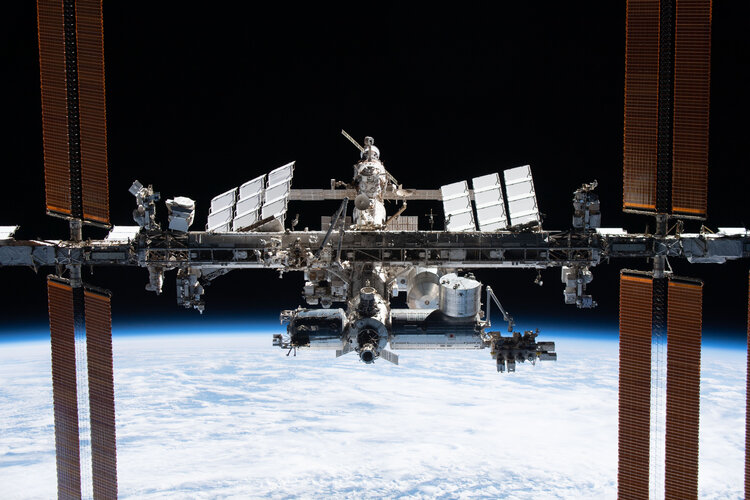It can be hard to appreciate that a human-made, football-pitch-sized spacecraft is orbiting 400 km above our heads, but there it is.
The jewel of human cooperation and ingenuity that is the International Space Station shines brightly in this image captured by ESA astronaut Thomas Pesquet from the SpaceX Crew Dragon Endeavour.
Crew-2 got these amazing views during a flyaround of the orbiting lab after undocking from the Harmony module on 8 November, before their return to Earth.
Since this image was taken, there has even been a new addition in the form of the Russian Node Module, known as Prichal. The final Russian module planned for the Station, it is a spherical node attached to the Russian segment with six docking ports for future Progress and Soyuz arrivals.
A collaboration between five space agencies, the Station has become a symbol of peaceful international cooperation for 23 years now. It represents the best of our space engineering capabilities as well as humankind’s pursuit of scientific knowledge and exploration.
By any standards, it is an incredible piece of spacecraft engineering. Weighing 420 tonnes, it travels in low-Earth orbit at more than 27 000 km/hour, circling Earth approximately 16 times every day.
Crew members conduct scientific research in microgravity at facilities such as ESA’s Columbus module. Some of these experiments and tests are preparing the way for human exploration of the Moon and beyond. But the Station also provides a unique view of Earth, while its science benefits life on our planet.
Current ESA astronaut in residence is Matthias Maurer, a first-time flier spending around six-months in orbit for his Cosmic Kiss mission. Matthias will continue to support a wide range of European and international science experiments and technological research on the Station before handing off to the next ESA astronaut to fly, Samantha Cristoforetti.
Follow Matthias’s mission on the Cosmic Kiss page.



 Image:
Image: